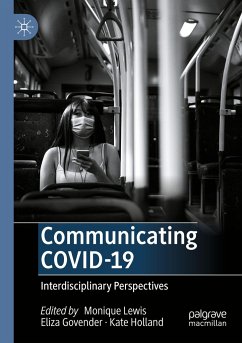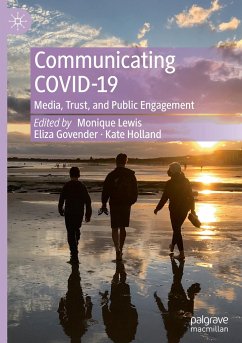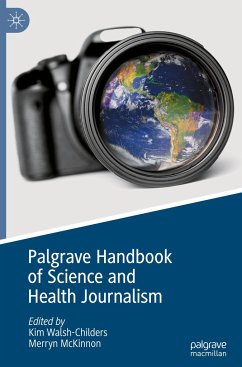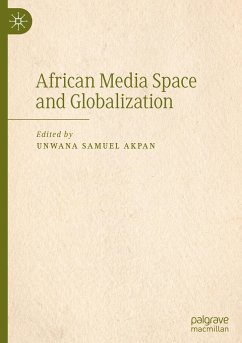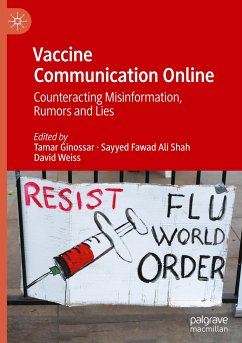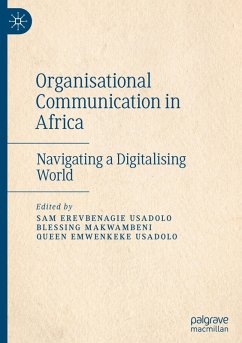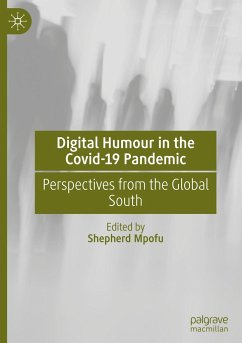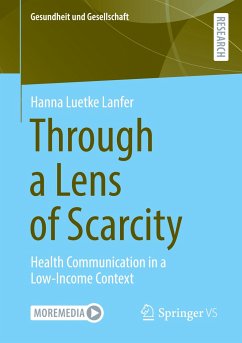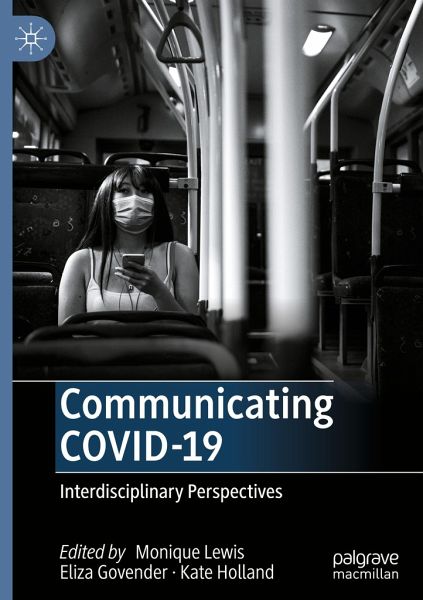
Communicating COVID-19
Interdisciplinary Perspectives
Herausgegeben: Lewis, Monique; Govender, Eliza; Holland, Kate

PAYBACK Punkte
61 °P sammeln!
This book explores communication during the first year of the COVID-19 pandemic. Featuring the work of leading communication scholars from around the world, it offers insights and analyses into how individuals, organisations, communities, and nations have grappled with understanding and responding to the pandemic that has rocked the world. The book examines the role of journalists and news media in constructing meanings about the pandemic, with chapters focusing on public interest journalism, health workers and imagined audiences in COVID-19 news. It considers public health responses in differ...
This book explores communication during the first year of the COVID-19 pandemic. Featuring the work of leading communication scholars from around the world, it offers insights and analyses into how individuals, organisations, communities, and nations have grappled with understanding and responding to the pandemic that has rocked the world. The book examines the role of journalists and news media in constructing meanings about the pandemic, with chapters focusing on public interest journalism, health workers and imagined audiences in COVID-19 news. It considers public health responses in different countries, with chapters examining community-driven approaches, communication strategies of governments and political leaders, public health advocacy, and pandemic inequalities. The role of digital media and technology is also unravelled, including social media sharing of misinformation and memetic humour, crowdsourcing initiatives, the use of data in modelling, tracking and tracing, andstrategies for managing uncertainties created in a pandemic.





